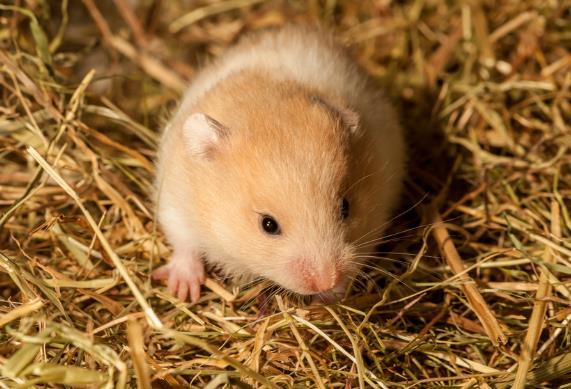Here’s a detailed guide to hay for hamsters, considering both nutritional value and practical care needs:

I. Core Recommended Hay Types
Timothy Hay
With a high fiber content (>30%), it promotes intestinal motility, prevents loose stools and obesity, making it ideal as a long-term staple hay. Its moderate hardness also helps with teeth grinding, reducing issues of overgrown teeth. Prioritize first-cut dried hay segments with intact leaves and a rich aroma.
Dandelion Hay
A top choice for summer, it has heat-clearing and detoxifying properties, helping improve urine odor and enhance coat brightness. It’s rich in calcium, so supplementing 2-3 times a week is sufficient.
Plantain Hay
It supports diuresis and eye health, making it suitable for elderly hamsters or those prone to overheating.
II. Usage Recommendations
For young or sick hamsters: Prioritize timothy hay with tender leaves, as its fiber is easier to digest.
Mixing ratio: Hay should make up 30%-40% of the main diet, with timothy hay accounting for over 70% of the total hay amount.
Storage method: Keep sealed and away from light, with humidity controlled below 50% to prevent mold growth.
III. Important Notes
Avoid excessive alfalfa hay: Its high protein content can cause obesity; adult hamsters should have it no more than twice a week.
Dual-purpose as bedding and food: If using timothy hay as bedding, choose food-grade products with no pesticide residues.
Transitioning to new hay: When introducing new hay, mix it with the old hay and gradually increase the proportion to avoid refusal to eat.
With a scientific mix, these hays can fully meet a hamster’s needs for teeth grinding, digestion, and nutrition.
